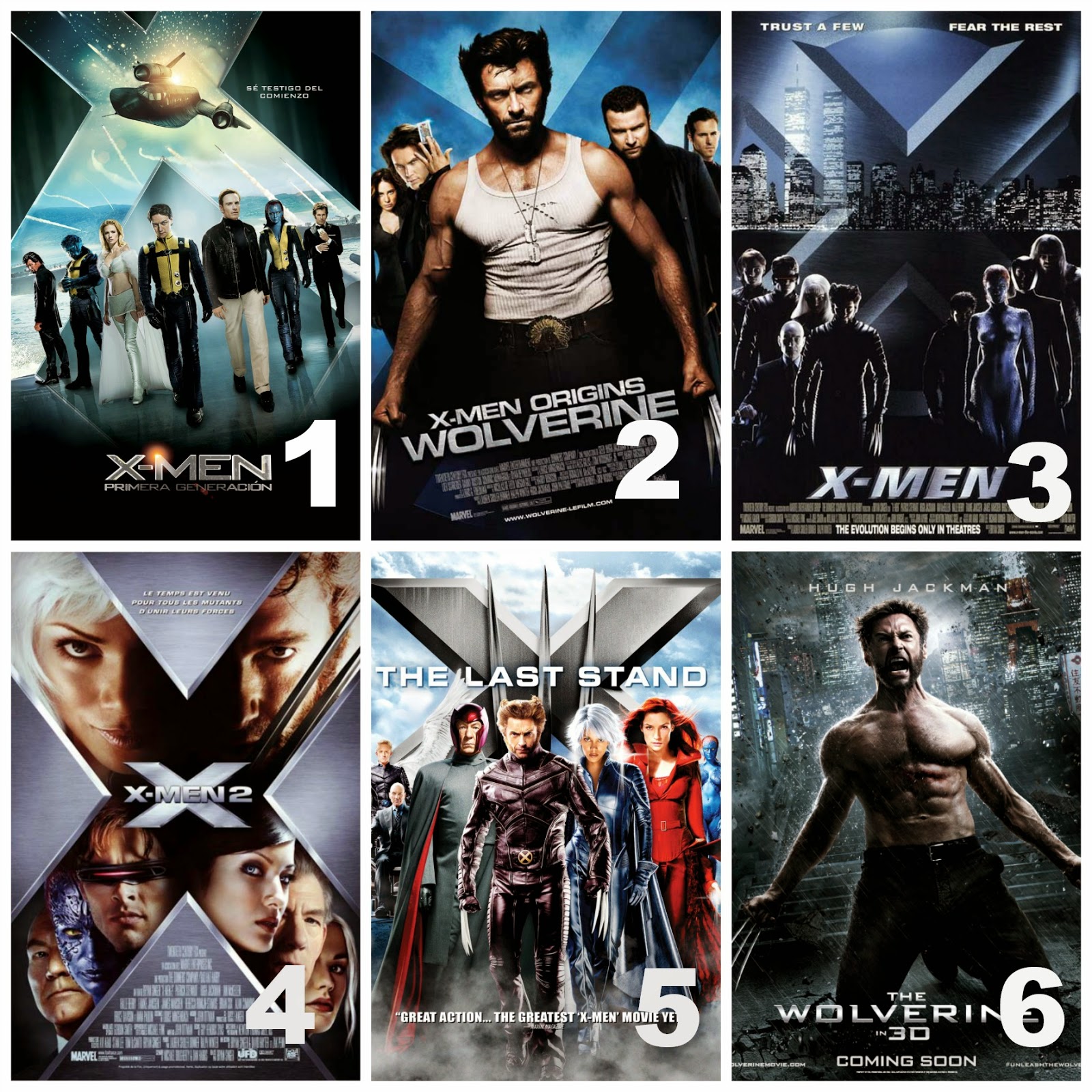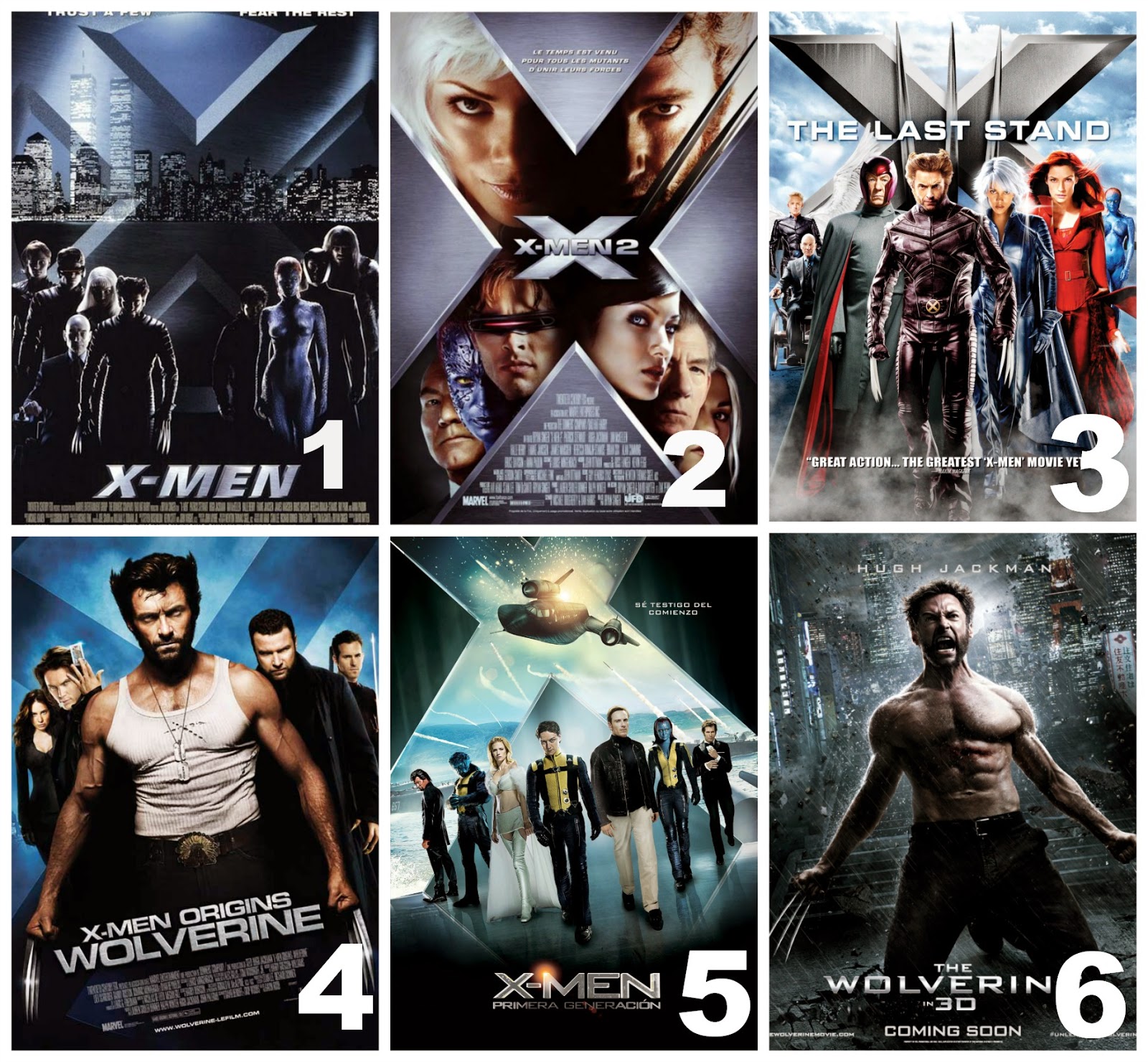X Men In Order: The Complete Guide To The X-Men Franchise
When it comes to iconic superhero teams, few can rival the legacy and impact of the X-Men. Created by writer Stan Lee and artist Jack Kirby, the X-Men made their first appearance in 1963 and have since become a staple in comic book culture, television, and film. The franchise focuses on a group of mutants, individuals born with extraordinary powers, who often face prejudice and discrimination. In this article, we will explore the X-Men in order, detailing their evolution in comics and films, and offering insights into the characters and story arcs that have captivated audiences for decades.
The X-Men franchise has expanded over the years, evolving from comic books to animated series and blockbuster movies. With a rich narrative filled with complex characters, moral dilemmas, and social commentary, the X-Men stories resonate with fans of all ages. This guide will provide you with a comprehensive overview of the X-Men in order, including their origins in the comics and the various adaptations in film and television.
Whether you are a lifelong fan or a newcomer looking to dive into the X-Men universe, this article will serve as your ultimate resource. We will break down the timeline of the X-Men, highlighting key events, character introductions, and the overall influence of the franchise on popular culture. Let's embark on this journey through the world of mutants and heroes!
Table of Contents
- 1. The Origins of the X-Men
- 2. Key Characters in the X-Men Universe
- 3. X-Men Comics Timeline
- 4. X-Men Animated Series
- 5. The X-Men Film Series
- 6. Spin-offs and Related Media
- 7. The Cultural Impact of the X-Men
- 8. Conclusion
1. The Origins of the X-Men
The X-Men were introduced to the world in the comic book "X-Men #1," released in September 1963. The series was groundbreaking for its time, tackling themes of prejudice, acceptance, and the struggle for equality. The primary characters included Professor Charles Xavier, Cyclops, Jean Grey, Beast, Angel, and Iceman, who were united by their abilities and a mission to protect a world that fears and hates them.
Stan Lee and Jack Kirby's creation was influenced by the civil rights movement and the desire to address social issues through the lens of superhero storytelling. The X-Men's struggle against discrimination mirrored real-world challenges, making them relatable to readers. This approach set the stage for the X-Men's enduring popularity and relevance.
The Concept of Mutants
In the X-Men universe, mutants are humans with unique genetic mutations that grant them extraordinary powers. These abilities can range from telepathy and telekinesis to super strength and shape-shifting. The existence of mutants raises questions about identity, acceptance, and the nature of humanity, creating rich narrative possibilities for the franchise.
2. Key Characters in the X-Men Universe
The X-Men franchise boasts a diverse cast of characters, each with their own unique abilities and story arcs. Here are some of the most prominent figures in the X-Men universe:
- Professor Charles Xavier: The founder of the X-Men and a powerful telepath who advocates for peaceful coexistence between humans and mutants.
- Magneto: A complex antagonist and ally, Magneto possesses the ability to manipulate magnetic fields and often clashes with Xavier over their differing ideologies.
- Wolverine: A fan-favorite character known for his regenerative healing factor, adamantium claws, and fierce loyalty to his friends.
- Storm: A powerful mutant capable of controlling the weather, Storm serves as a leader within the X-Men and symbolizes strength and resilience.
- Jean Grey: A telepath and telekinetic, Jean's journey is central to many X-Men storylines, particularly her transformation into the Phoenix.
3. X-Men Comics Timeline
The X-Men have a long and storied history in comic books. Here's a brief overview of key events in the X-Men comics timeline:
- 1963: The release of "X-Men #1," introducing the original team.
- 1975: The "Giant-Size X-Men #1" introduces a new, diverse team, revitalizing the franchise.
- 1980: The "Dark Phoenix Saga" storyline solidifies the X-Men's popularity and showcases Jean Grey's transformation.
- 1991: The launch of "X-Men" #1, which becomes one of the best-selling comic books of all time.
- 2000: The release of the first X-Men film, bringing the characters to a new audience.
4. X-Men Animated Series
The X-Men animated series, which aired from 1992 to 1997, played a significant role in popularizing the franchise among younger audiences. The show adhered closely to the comics and introduced viewers to pivotal story arcs, including the "Dark Phoenix Saga" and the "Days of Future Past." The series was praised for its character development, voice acting, and faithful adaptation of the source material.
5. The X-Men Film Series
The X-Men film series began with the release of "X-Men" in 2000, directed by Bryan Singer. This film marked the beginning of a successful franchise that has included multiple sequels and spin-offs. Here’s a chronological list of the main films in the X-Men series:
- X-Men (2000)
- X2: X-Men United (2003)
- X-Men: The Last Stand (2006)
- X-Men Origins: Wolverine (2009)
- X-Men: First Class (2011)
- X-Men: Days of Future Past (2014)
- X-Men: Apocalypse (2016)
- Logan (2017)
- X-Men: Dark Phoenix (2019)
- The New Mutants (2020)
6. Spin-offs and Related Media
The X-Men franchise has expanded beyond the main film series, with several spin-offs and related media that explore individual characters and storylines:
- Deadpool: A successful spin-off featuring the anti-hero Deadpool, known for its humor and self-awareness.
- Logan: A critically acclaimed film focusing on an aging Wolverine and his quest for redemption.
- Legion: A television series that follows the story of David Haller, a mutant with dissociative identity disorder.
- The Gifted: A series that explores the lives of mutants trying to navigate a world that fears them.
7. The Cultural Impact of the X-Men
The X-Men's themes of acceptance, diversity, and the fight against prejudice resonate strongly in modern society. The franchise has served as a metaphor for various social issues, including racism, LGBTQ+ rights, and the immigrant experience. The X-Men's popularity has led to a growing fanbase and significant cultural influence, inspiring discussions about identity and belonging.
Conclusion
In conclusion, the X-Men franchise has left an indelible mark on popular culture through its compelling storytelling, diverse characters, and exploration of social issues. From its origins in comic books to its successful adaptations in film and television, the X-Men have captivated audiences for generations. We encourage you to explore the X-Men universe further, whether through reading the comics, watching the animated series, or enjoying the films. Share your thoughts in the comments below, and don't forget to check out our other articles for more insights into your favorite franchises!
Thank you for joining us on this journey through the world of the X-Men. We hope to see you again soon!
Eve Hewson Age: Discovering The Life And Career Of The Rising Star
What Kind Of Ramen Noodles Are Being Recalled?
What Noodles Got Recalled: A Comprehensive Guide To Recent Food Safety Alerts


